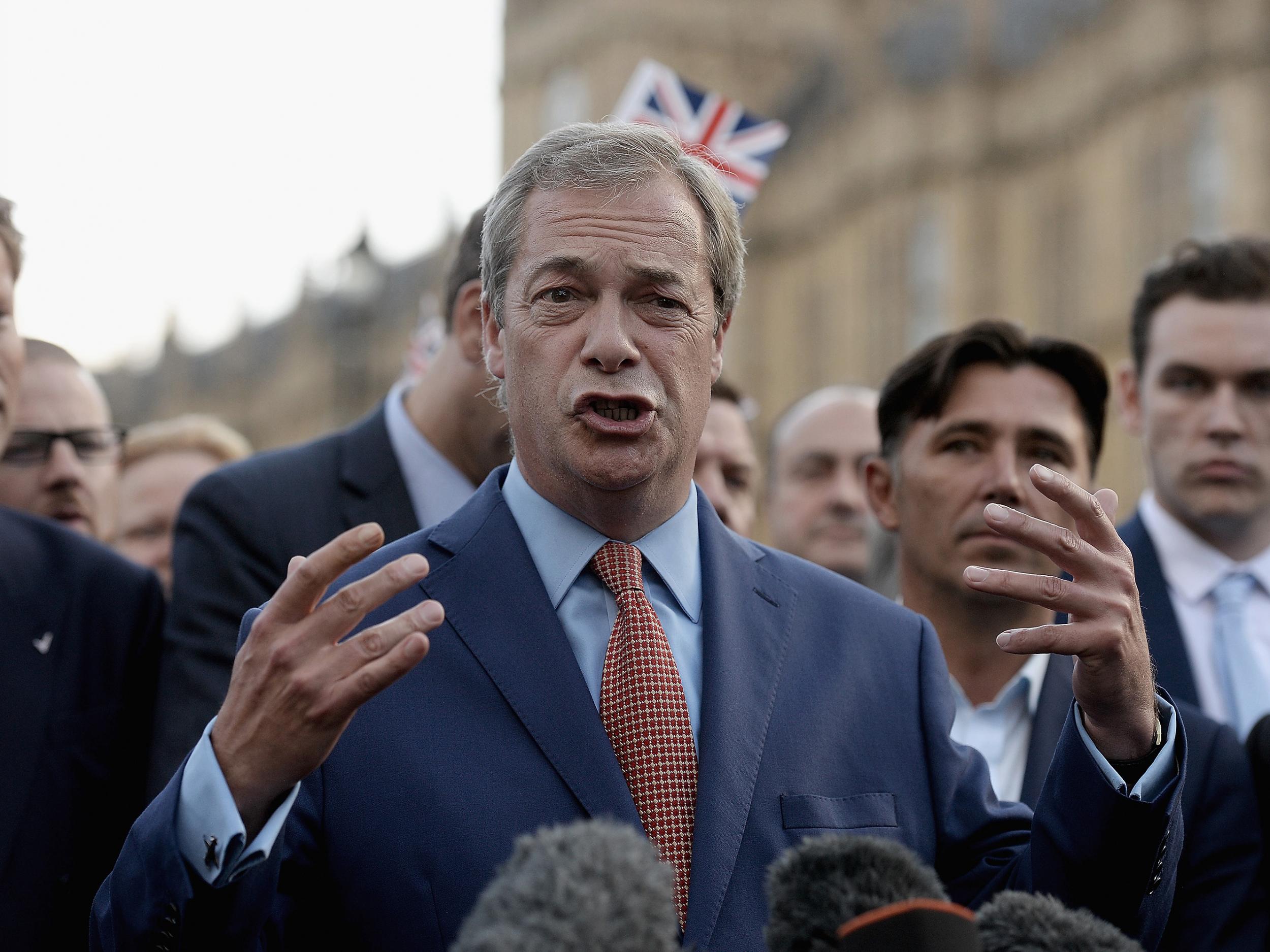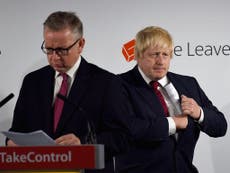It's offensive to call Brexit an 'Independence Day' - the EU wasn't an enslaving colonial power like Britain
Calling for a British Independence Day is wounding to all the nations that revolted and fought hard against British colonial rule. This kind of language is contributing to real incidents of xenophobia across the UK

After the EU referendum results, Nigel Farage proudly proclaimed that the 23rd of June should go down as Britain’s “Independence Day”. Many who supported Leave repeated this statement in an act of patriotism. However, using the the rhetoric of “Independence Day” is deeply insensitive. Traditionally, an “Independence Day” marks the end of colonialism and ownership. It’s completely inaccurate to equate Brexit with the liberation of ex-colonies from imperial powers.
A sizeable section of the British electorate - and particularly the English – voted for a return to the days when the British Empire was a global power when they put a cross in the “Leave” box. Boris Johnson and other leave advocates even echoed some of Trump’s rhetoric by stating, “Let’s make Britain great again.” It was an explicit harking back to “greater” days with less immigration and more colonial control.
Straight after his claim that Independence Day had come for Britain, Farage now-infamously stated: “We’ll have done it without having to fight, without a single bullet being fired.” Not only was this ridiculous since a British MP had been gunned down only days before, but it was ridiculous in its implication that Britain had fought a war against a power they’d liberated themselves from.
Calling for a British Independence Day is wounding to all the nations that revolted and fought hard against British colonial rule. Before we associate our EU membership with colonisation, we should think long and hard about what a country celebrating their independence really means. The EU didn’t invade Britain, enslave the British people, take away the country’s resources and destroy established societies, traditions and culture. Britain voluntarily joined the EEC in 1973.
The referendum revealed that there is another world beyond conservative and liberal politics. The results were influenced by nationalism and race. Hence we had a well-educated Etonian leading a campaign which disliked “economic experts” and the “elite class” and adopted Ukip’s and Trump’s rhetoric of “wanting our country back”.
Some of us questioned whether Brexit was in fact a good thing, after far-right politicians such as Marine Le Pen, Geert Wilders and Donald Trump all congratulated us for the result. Upon arriving in Scotland, Trump tweeted, "Place is going wild over the vote. They took their country back, just like we will take America back." That's despite the fact that 62 percent of Scots had actually voted to remain in the EU.
The imperialistic language was rampant in the Leave campaign, where some called for an end to EU migration in favour of migrants from Australia, longing for the imperial dream by welcoming back British territories with substantial settler populations. Despite the geographical complexity, others called for a union with Commonwealth countries, united only because the Union flag once flew on their soil.
When politicians say they want their country back and call for an Independence Day, what usually follows isn’t surprising. Communities were left divided and bruised and we saw a rise in xenophobia. Hundreds reported such incidents on social media, and Labour MP Seema Malhotra said schoolchildren were racially abused this week and many feel “vulnerable” after the referendum.
Those who are calling the 23rd of June Britain’s Independence Day have no real understanding of the atrocities inflicted on the colonies. This rhetoric has opened up colonial wounds, making the use of such terminology deeply ironic. Xenophobia allowed Britannia to rule those waves. The imperial powers might have waned, but the blind nationalism guided by racism seems to be back with renewed vigour.



Join our commenting forum
Join thought-provoking conversations, follow other Independent readers and see their replies